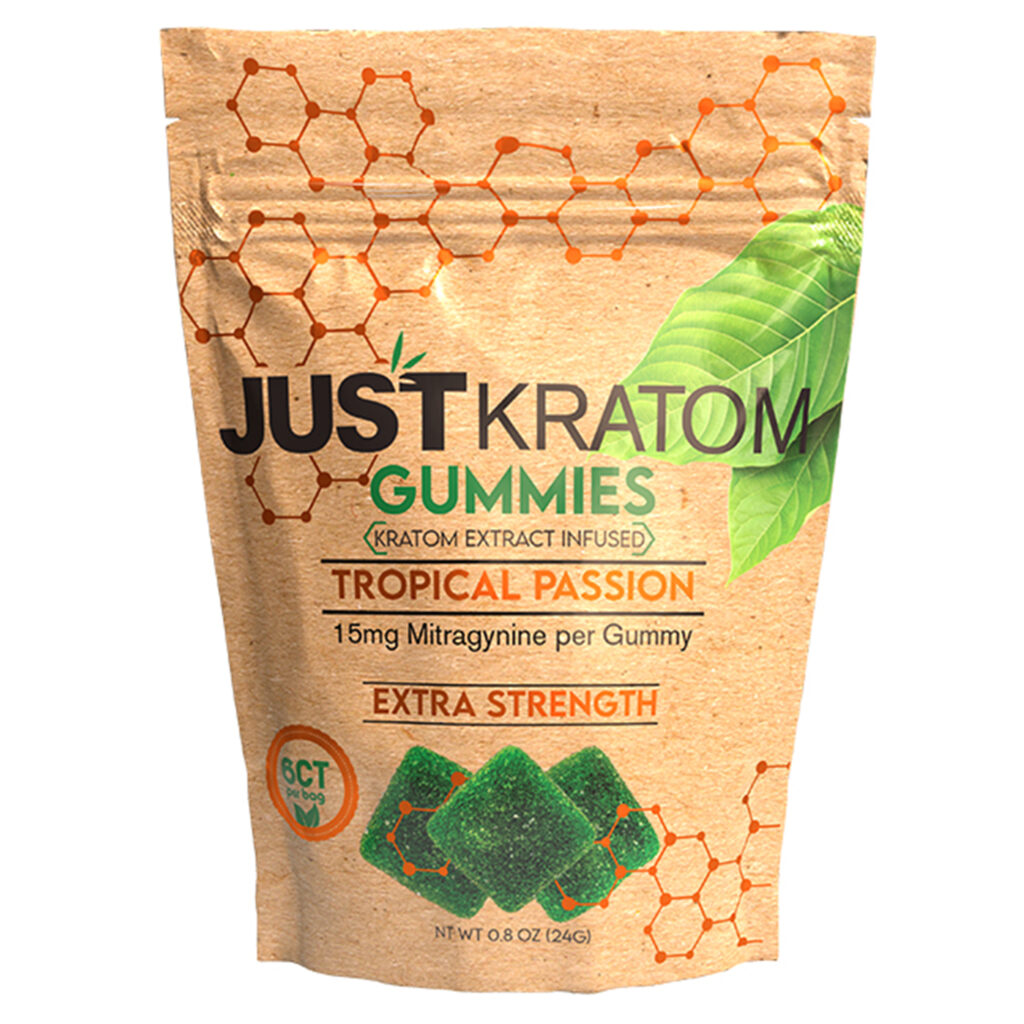How Kratom Gummies Affect The Nervous System
Activation of Opioid Receptors
Activation of opioid receptors in the brain is a key mechanism by which kratom exerts its effects. Kratom contains compounds called mitragynine and 7-hydroxymitragynine, which bind to mu-opioid receptors, similar to morphine or heroin. This binding triggers a cascade of events that lead to various physiological responses, including pain relief, euphoria, and sedation.
The specific effects of kratom on the nervous system depend on several factors, including the dose consumed, the individual’s tolerance level, and genetic predisposition. At lower doses, kratom may primarily stimulate opioid receptors, leading to increased alertness and energy. At higher doses, it tends to activate inhibitory pathways, resulting in sedation and analgesia.
Impact on Dopamine and Serotonin Pathways
Kratom gummies, containing extracts from the Mitragyna speciosa tree, have gained popularity as a potential alternative for managing pain and promoting relaxation. However, their impact on the nervous system, particularly the neurotransmitter pathways responsible for mood and motivation, requires careful consideration.
- Dopamine
- Serotonin
Kratom’s primary active compounds, mitragynine and 7-hydroxymitragynine, are thought to exert their effects by binding to opioid receptors in the brain. This interaction can influence the release and reuptake of dopamine and serotonin, neurotransmitters crucial for regulating pleasure, reward, mood, and cognitive function.

The complex interplay between kratom and these neurotransmitter systems can lead to both desired and undesired effects.
While some individuals may experience increased feelings of well-being and euphoria due to dopamine stimulation, prolonged or excessive kratom use can disrupt the delicate balance in these pathways, potentially leading to tolerance, dependence, and withdrawal symptoms.
Furthermore, alterations in serotonin levels can contribute to mood swings, anxiety, and sleep disturbances.
It’s essential to approach kratom consumption with caution and consult a healthcare professional for personalized guidance, especially if you have pre-existing mental health conditions or are taking other medications.
Effects on Pain Perception
Pain perception is a complex phenomenon influenced by a multitude of factors, including genetics, environment, and individual experiences. The way our nervous system processes pain signals can vary significantly from person to person, leading to differences in pain thresholds and tolerance. Understanding these variations is crucial for developing effective pain management strategies.
Analgesic Mechanisms
Kratom gummies, derived from the Mitragyna speciosa tree, exert their effects primarily by interacting with the opioid receptors in the nervous system. These receptors are involved in regulating pain perception and contributing to feelings of euphoria and analgesia. Kratom alkaloids, notably mitragynine and 7-hydroxymitragynine, bind to these receptors, mimicking the actions of endogenous opioids like endorphins. This binding leads to a reduction in pain signals transmitted to the brain, thereby alleviating pain perception.
Additionally, kratom may influence other neurotransmitter systems involved in pain processing, such as serotonin and dopamine. These interactions contribute to its multifaceted analgesic mechanisms.
Potential for Tolerance and Dependence
Kratom gummies, derived from the Mitragyna speciosa tree, exert their effects by interacting with opioid receptors in the brain and nervous system. These interactions can lead to altered pain perception, similar to the effects of opioid medications. Users often report kratom gummies as helpful for managing mild to moderate pain.

There is a potential for tolerance and dependence with prolonged use of kratom gummies. Regular consumption may lead to the body adapting to the substance, requiring higher doses to achieve the same effects (tolerance). Additionally, individuals can develop physical and psychological dependence on kratom, experiencing withdrawal symptoms upon cessation or reduction in dosage.
Influence on Mood and Anxiety
Kratom gummies can significantly influence pain perception by activating mu-opioid receptors, producing a pain-relieving effect comparable to opioids like morphine. This activation can lead to a decrease in the experience of both acute and chronic pain.
The impact of kratom gummies on mood is multifaceted. At lower doses, they may elevate mood and induce feelings of euphoria, similar to stimulant effects. However, at higher doses, they can lead to sedation and relaxation, potentially alleviating anxiety in some individuals. It’s important to note that the relationship between kratom and anxiety is complex and can vary depending on individual factors.
Impact on Attention and Focus
Kratom’s impact on the nervous system can significantly affect pain perception and attention. By activating opioid receptors, kratom inhibits pain signals transmitted to the brain, leading to analgesic effects. However, this can also result in sedation and reduced alertness, potentially impairing focus and concentration.
The interaction of mitragynine and 7-hydroxymitragynine with dopamine and serotonin pathways further influences cognitive function. Dopamine, associated with pleasure and reward, may be stimulated at lower doses, potentially enhancing motivation and focus. Conversely, higher doses or prolonged use can lead to dopamine receptor desensitization, resulting in decreased motivation and attentional difficulties.
Serotonin, involved in mood regulation and sleep cycles, is also affected by kratom. While short-term use may temporarily improve mood, chronic consumption can disrupt serotonin balance, potentially causing anxiety, irritability, or sleep disturbances.
Possible Cognitive Impairment at High Doses
Kratom exerts its pain-relieving effects by interacting with opioid receptors in the central nervous system. Activation of these receptors can inhibit the transmission of pain signals from the periphery to the brain, effectively reducing the perception of pain.
However, it’s important to note that high doses of kratom may lead to cognitive impairment. This can manifest as difficulty concentrating, impaired memory, and slowed reaction times. These effects are likely due to kratom’s impact on dopamine and serotonin neurotransmitter systems in the brain.
Kratom Gummies for sale at great prices
Explore the post completely
Dive into the full perspective
- Xela Rederm Skin Booster Treatments Near Ranmore, Surrey - January 24, 2026
- Xela Rederm Skin Booster Treatments Near Chobham, Surrey - January 21, 2026
- Why Vapers Are Switching To The Vista Edge Series In 2025 - January 19, 2026
